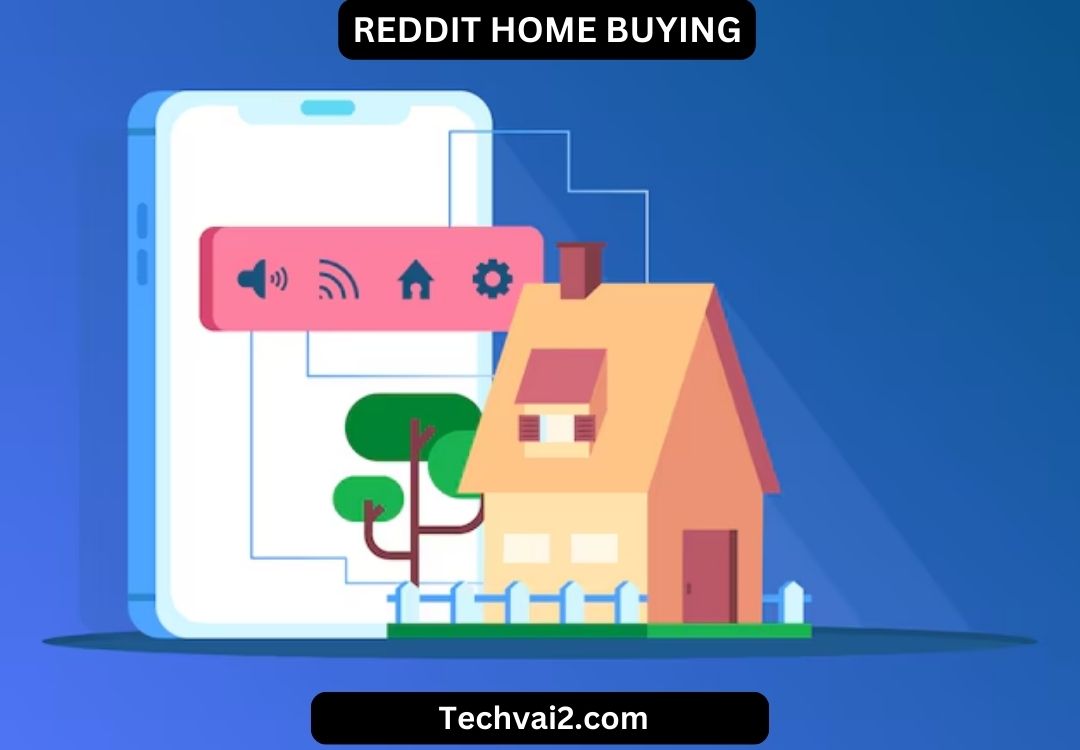How to buy pre foreclosure homes

How to Buy Pre-Foreclosure Homes
how to buy pre foreclosure homes .Buying a pre-foreclosure home can be an excellent way to get a great deal on a property, but the process can be more complex than a traditional home purchase. If you’re wondering how to buy pre-foreclosure homes, you’ve come to the right place. In this guide, we’ll walk you through each step of the process, helping you find, finance, and close on a pre-foreclosure home successfully.
How to Buy Pre-Foreclosure Homes
What Is a Pre-Foreclosure Home?
A pre-foreclosure home is a property where the homeowner has fallen behind on mortgage payments, but the home has not yet been sold at auction. In this phase, the lender has issued a Notice of Default (NOD), giving the homeowner a chance to catch up on payments or sell the home before it goes into full foreclosure.
Buying a home in pre-foreclosure means negotiating directly with the homeowner to purchase the property before it is repossessed by the bank.
Benefits of Buying Pre-Foreclosure Homes
1. Lower Purchase Price
Pre-foreclosure homes are often sold at a discount because the owner is motivated to avoid foreclosure. This can provide significant savings for the buyer.
2. Less Competition
Unlike homes sold at foreclosure auctions, pre-foreclosure homes typically have less competition, as they’re not as widely advertised. This can give you an edge in negotiations.
3. Potential for Equity Growth
If you buy a pre-foreclosure home at a reduced price and the market in the area improves, the home’s value may increase, giving you a solid return on investment over time.
Understanding the Pre-Foreclosure Process
To successfully buy a pre-foreclosure home, it’s important to understand the process:
Stage 1: Notice of Default
The pre-foreclosure process begins when the lender files a Notice of Default (NOD) with the local courthouse. This public document alerts both the homeowner and the public that the borrower has defaulted on the mortgage.
Stage 2: Negotiation Period
After the NOD is filed, the homeowner has a period of time (which varies by state) to negotiate with the lender or sell the home. This is when you, as a buyer, can step in to make an offer.
Stage 3: Auction or Foreclosure
If the homeowner does not sell the property or resolve the default, the home will eventually go to auction or foreclosure. Once it reaches this stage, your opportunity to negotiate with the homeowner ends, and the bank takes over the sale.
How to Find Pre-Foreclosure Homes
1. Online Listings
Websites like Zillow, Realtor.com, and Foreclosure.com have sections dedicated to pre-foreclosure listings. These sites provide details about properties that are in the pre-foreclosure phase, allowing you to search by location.
2. Local Courthouse Records
Pre-foreclosure filings are public records. You can visit your local courthouse or check online for Notices of Default to identify potential properties.
3. Real Estate Agents Specializing in Foreclosures
Some real estate agents specialize in distressed properties, including pre-foreclosures. They have access to listings and can help guide you through the process.
4. Driving Through Neighborhoods
Many times, pre-foreclosure homes will not have public listings. Driving through neighborhoods and looking for signs of neglect or contacting homeowners directly can lead to opportunities.
5. Networking with Real Estate Investors
Experienced investors often have networks that can help you locate pre-foreclosure properties before they hit the market. Attending local real estate investment meetups can provide valuable contacts.
How to Finance a Pre-Foreclosure Purchase
Financing a pre-foreclosure home is similar to financing a traditional home purchase, but there are a few key differences. Here are some options:
1. Conventional Loans
If the home is in good condition, a conventional loan from a bank or credit union is a straightforward option. Pre-approval is important to show the seller you’re a serious buyer.
2. FHA Loans for Foreclosed Homes
The Federal Housing Administration (FHA) offers loans specifically for foreclosed homes, including those in pre-foreclosure. These loans are backed by the government and typically require lower down payments.
3. Hard Money Loans
Hard money loans are a quicker, but more expensive, option. These loans are typically provided by private lenders and are based on the value of the property rather than the borrower’s credit score.
4. Cash Offers
If you have the funds available, a cash offer can make your purchase more attractive to the seller. Cash sales often close faster, which can be appealing to homeowners in financial distress.
Key Steps to Buying a Pre-Foreclosure Home
Step 1: Research Pre-Foreclosure Properties
Once you’ve identified a pre-foreclosure property, research the home’s value, its mortgage status, and any outstanding liens. This information can usually be found in public records.
Step 2: Contact the Owner
Reach out to the homeowner directly, but do so with empathy. These owners are often in a stressful situation and might be more open to negotiation if you approach them respectfully.
Step 3: Conduct a Title Search
A title search will reveal any existing liens or claims on the property. This step is crucial to ensure there are no hidden financial obligations tied to the home.
Step 4: Get Pre-Approved for Financing
Before making an offer, get pre-approved for a mortgage or ensure you have the funds available. This shows the seller that you’re serious and ready to close the deal.
Step 5: Negotiate with the Homeowner
The key to buying a pre-foreclosure home is negotiating a price that satisfies both parties. Be prepared to offer enough to cover the outstanding mortgage, but you may be able to negotiate a lower price depending on the homeowner’s situation.
Step 6: Make an Offer
Once you’ve agreed on a price, make a formal offer in writing. Be sure to include any contingencies, such as an inspection or securing financing.
What to Look For in a Pre-Foreclosure Property
When evaluating a pre-foreclosure property, keep an eye on:
- Property Condition: Pre-foreclosure homes may have deferred maintenance or other issues. Always conduct a thorough home inspection.
- Outstanding Liens and Taxes: Be sure to account for any unpaid taxes or liens that could complicate the sale.
- Neighborhood and Market Trends: Investigate the local market to ensure the home is a sound investment. Look for indicators of neighborhood growth or decline.
Negotiating with the Homeowner
Negotiating with a homeowner in pre-foreclosure requires sensitivity and understanding. The homeowner is likely under financial stress, so approach with empathy. Offer a fair price that can help them avoid foreclosure while still providing you with a good deal.
Legal Considerations When Buying Pre-Foreclosure Homes
Understanding Local Foreclosure Laws
Each state has different laws regarding foreclosure timelines, homeowner rights, and pre-foreclosure processes. Make sure you understand your state’s specific laws.
Reviewing the Notice of Default
The NOD is a public document that outlines how much the homeowner owes and when the foreclosure process will begin. Use this document to gauge how much time you have to negotiate.
Hiring a Real Estate Attorney
Given the complexity of pre-foreclosure transactions, it’s a good idea to hire a real estate attorney who can help you navigate the legal aspects of the sale.
Risks of Buying Pre-Foreclosure Homes
While buying a pre-foreclosure home can be a great investment, it’s not without risks. These include:
- Potential Property Damage: The homeowner may have neglected maintenance, resulting in costly repairs.
- Hidden Liens: There may be unpaid taxes, contractor liens, or other financial obligations tied to the home.
- Timing Issues: If you don’t close the sale quickly, the home could go into foreclosure, complicating the process.
Home Inspection for Pre-Foreclosure Properties
Always conduct a thorough home inspection before finalizing your purchase. Pay close attention to the home’s structure, plumbing, electrical systems, and any signs of neglect. If the inspection reveals major issues, you can use this information to renegotiate the price or decide if the investment is worth it.
Finalizing the Purchase
Once you’ve agreed on a price and completed the inspection, it’s time to finalize the purchase. This involves:
- Securing Financing: Finalize your loan or prepare your cash payment.
- Closing the Sale: Work with a title company or real estate attorney to ensure all legal documents are in order.
- Handling Outstanding Debts or Liens: Any liens or unpaid taxes must be settled before the sale can be completed.
How to Avoid Common Mistakes When Buying Pre-Foreclosure Homes
1. Rushing the Process
Take your time to conduct due diligence. Rushing through negotiations or skipping steps could lead to costly mistakes.
2. Skipping the Title Search
A title search is essential for uncovering hidden debts, liens, or legal issues tied to the property.
3. Not Preparing for Extra Costs
Always budget for unexpected expenses, such as repairs or settling liens. Pre-foreclosure homes can come with hidden costs that may affect your investment.
Read More articles
Conclusion
Buying a pre-foreclosure home can be a rewarding way to invest in real estate, often leading to significant savings and future equity growth. However, it’s essential to approach the process with careful planning, empathy, and a willingness to do your research. By following the steps outlined in this guide, you can successfully navigate the pre-foreclosure market and find the perfect property at the right price.
FAQs
1. What is the difference between pre-foreclosure and foreclosure?
Pre-foreclosure is the period before the home is officially repossessed by the bank, where the homeowner still has the opportunity to sell or settle the debt. Foreclosure occurs when the lender takes possession of the property and it’s sold at auction.
2. Can you get a loan for a pre-foreclosure home?
Yes, you can finance a pre-foreclosure home with a conventional loan, FHA loan, or even a hard money loan. Pre-approval is important to show the homeowner you’re a serious buyer.
3. How long does it take to buy a pre-foreclosure home?
The time frame varies, but pre-foreclosure purchases generally take longer than traditional sales due to the negotiation process and potential legal complications. It could take several weeks to months.
4. Do you need a real estate agent to buy a pre-foreclosure home?
While you don’t need a real estate agent, having one with experience in pre-foreclosures can simplify the process and help you avoid legal or financial pitfalls.
5. Are pre-foreclosure homes sold as-is?
Yes, most pre-foreclosure homes are sold as-is, meaning the buyer is responsible for any repairs or issues with the property. This is why conducting a thorough home inspection is critical.






